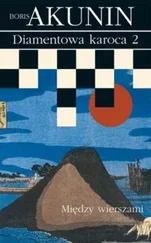Evstratii Pavlovich had listened to the agent’s agitated jabbering and ordered him to wait for the group of experts to arrive, then sat down at the desk and started drawing the crest – to clear his mind and, even more importantly, to calm his nerves.
Just recently the court counsellor’s nerves hadn’t been worth a rotten damn. The medical diagnosis read: ‘General neurasthenia resulting from excessive fatigue; enlargement of the pericardium; congestion of the lungs and partial damage to the spinal cord that might pose the threat of paralysis’. Paralysis! You had to pay for everything in this life, and the price was usually much higher than you expected.
So here he was, a hereditary nobleman, the head of a supremely important section in the Department of Police, with an annual salary of six thousand roubles – and never mind the salary, he had a budget of thirty thousand to use entirely at his own discretion, every functionary’s dream. But without his health, what good was all the gold in the world to him now? Evstratii Pavlovich was tormented by insomnia every night, and if he ever did fall asleep, that was even worse: bad dreams, ghoulish visions, with the devil’s work in them. He woke in a cold sweat, with his teeth chattering wildly. He kept thinking he could see something stirring repulsively in the corners and hear someone chuckling indistinctly, but derisively, or that ‘someone’ might suddenly start howling. In his sixth decade Mylnikov, the scourge of terrorists and foreign spies, had started sleeping with a lighted icon lamp. For the sanctity of it, and to keep away the darkness in the nooks and crannies. All those steep hills had nigh on knackered the old horse …
The previous year he had applied to retire – and why not, he had a bit of money put by, and a little homestead bought, in a fine area for mushrooms, out on the Gulf of Finland. And then this war happened. The head of the Special Section, the director of the Department and the minister himself had implored him: Don’t betray us, Evstratii Pavlovich, don’t abandon us in dangerous times like these. You can’t refuse!
The court counsellor forced himself to focus his thoughts on more pressing matters. He tugged on his long Zaporozhian Cossack moustache, then drew two circles on the paper, a wavy line between them and a question mark up above.
Two little facts, each on its own more or less clear.
So, Maximenko had died, his overworked heart had given out under the stresses and strains of the service. It happened.
Honorary citizen Komarovsky, whoever the hell he was (the Moscow lads had picked up his trail the day before yesterday at a secret Socialist Revolutionary meeting place), had hanged himself. That happened with some neurasthenic revolutionaries too.
But for two existences that were to some degree interconnected, two, so to speak, intersecting earthly vales, both to be broken off abruptly and simultaneously? That was too queer by half. Evstratii Pavlovich had only the vaguest idea of what an earthly vale was, but he liked the sound of the words – he had often imagined himself wandering through life as just such a vale, narrow and tortuous, squeezed in between bleak, rocky cliffs.
Who was this Kalmyk? Why did he go to see Twitchy – on business or, perhaps, by mistake (he was only there for four minutes)? And what took Maximenko into a dead-end courtyard?
Oh, Mylnikov didn’t like this Kalmyk at all. He was more like the Angel of Death than a plain staff captain (the court counsellor crossed himself at the thought); he left one man, and he promptly hanged himself; another man followed the Kalmyk, and he died a dog’s death in a filthy passageway.
Mylnikov tried to draw a slant-eyed Kalmyk face beside the crest, but the likeness turned out poorly – he didn’t have the knack of it.
Ah, Kalmyk-Kalmyk, where are you now?
And Staff Captain Rybnikov, so accurately nicknamed by the agents (his face really was rather Kalmykish), was spending the evening of this troublesome day hurrying and scurrying more intensely than ever.
After the incident on Mitavsky Lane, he dropped into a telegraph office and sent off two messages: one was local, to the Kolpino railway station, the other was long-distance, to Irkutsk, and he quarrelled with the telegraph clerk over the rate – he was outraged that they took ten kopecks a word for telegrams to Irkutsk. The clerk explained that telegraphic communications to the Asiatic part of the empire were charged at a double rate, and he even showed Rybnikov the price list, but the staff captain simply wouldn’t listen.
‘What do you mean, it’s Asia?’ he howled, gazing around plaintively. ‘Gentlemen, did you hear what he said about Irkutsk? Why, it’s a magnificent city, Europe, the genuine article! Oh, yes! You haven’t been there, so don’t you talk, but I served three unforgettable years there! What do you make of this, gents? It’s daylight robbery!’
After raising a ruckus, Vasilii Alexandrovich moved to the queue for the international window and sent a telegram to Paris, at the urgent rate, that is to say, all of thirty kopecks for a word, but he behaved quietly here, without waxing indignant.
After that the irrepressible staff captain hobbled off to the Nicholas station, where he arrived just in time for the departure of the nine o’clock express.
He tried to buy a second-class ticket, but the ticket office didn’t have any.
‘Sorry, it’s not my fault,’ Rybnikov informed the queue with obvious satisfaction. ‘I’ll have to travel in third, even though I am an officer. Government business, I’ve no right not to go. Here’s six roubles. My ticket, please.’
‘There’s no more places in third class,’ the booking clerk replied. ‘There are places in first, for fifteen roubles.’
‘How much?’ Vasilii Alexandrovich gasped. ‘My father’s not called Rothschild, you know! If you’re really interested, I happen to be an orphan!’
They started explaining to him that there weren’t enough places, that the number of passenger trains to Moscow had been reduced because of the military traffic. And even that one ticket in first class had only become free by sheer chance, just two minutes ago. A lady had wanted to travel in a compartment alone, but this was forbidden by decree of the director of the line, and the passenger had been forced to return the extra ticket.
‘Well, are you taking it or not?’ the booking clerk asked impatiently.
Cursing plaintively, the staff captain bought the hugely expensive ticket, but he demanded ‘a paper with a seal’ stating that there hadn’t been any cheaper tickets available. They barely managed to get rid of him by sending him off to the duty station supervisor for a ‘paper’, but the staff captain didn’t go to him, instead he called into the left luggage office.
There he retrieved a cheap-looking suitcase and a long, narrow tube, the kind used for carrying blueprints.
And then it was already time to go to the platform, because they were ringing the first bell.
The third syllable, in which Vasilii Alexandrovich visits the WC
There was a lady passenger sitting in the first-class compartment – presumably the one who had been prevented from travelling in solitude by the rules of the railway.
The staff captain greeted her glumly, evidently still smarting over his fifteen roubles. He hardly even glanced at his travelling companion, although the lady was good-looking – in fact more than merely good-looking, she was quite exceptionally attractive: a delicate watercolour face, huge moist eyes behind a misty veil, an elegant travelling suit in a mother-of-pearl hue.
The lovely stranger took no interest in Rybnikov either. In reply to his ‘hello’ she nodded coldly, cast a single brief glance over her companion’s common features, his baggy uniform tunic and gingerish scuffed boots and turned away towards the window.
Читать дальше









